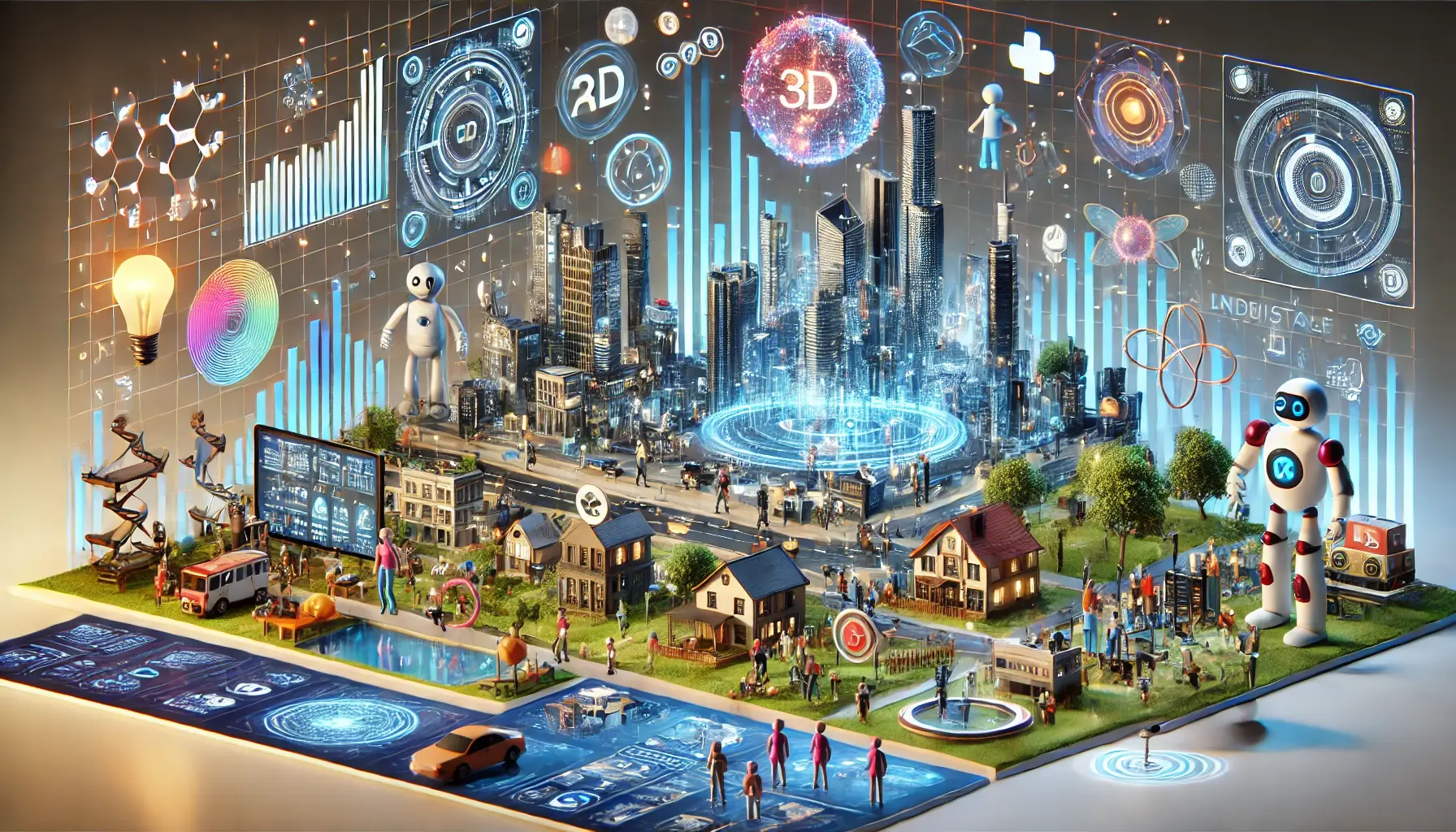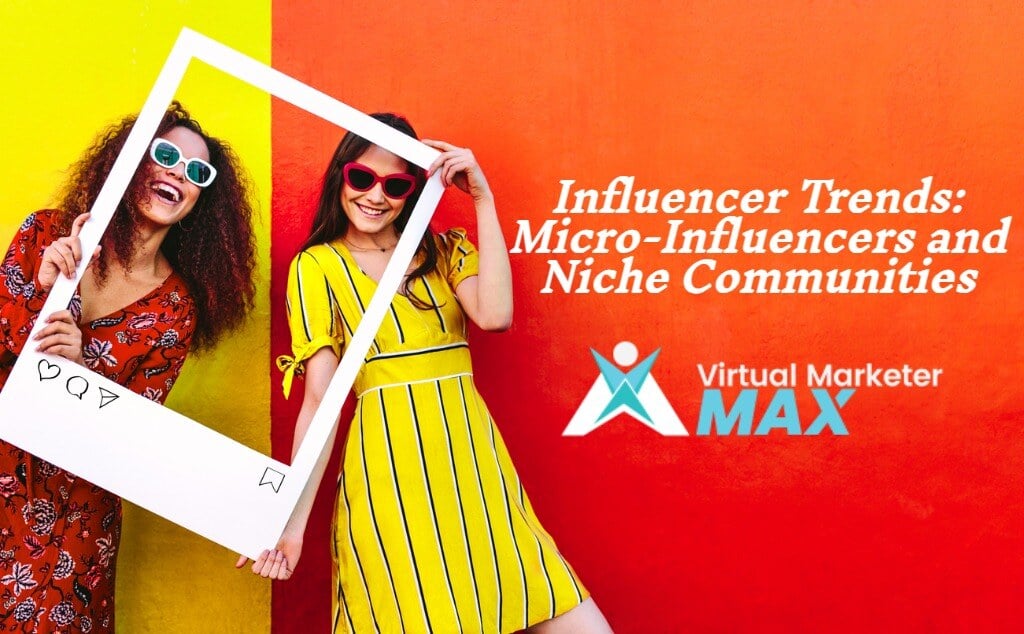5 min read
Image to 3D Model: Transforming Visuals with Advanced Technology
Introduction The ability to convert images into 3D models has revolutionized various industries, offering new possibilities for design,...
3 min read
The Amazing Team at Virtual Marketer Max : Aug 27, 2024 10:30:00 AM
The rise of artificial intelligence (AI) has opened new avenues in digital marketing, one of the most intriguing being the creation of AI influencers. These digital personas are designed to interact with audiences, promote brands, and generate content, just like human influencers.
This article explores the concept of AI influencers, their applications, and their relevance in the USA, highlighting their impact on the marketing landscape.
An AI influencer is a computer-generated digital character that uses AI algorithms to interact with audiences on social media platforms. These influencers are designed to have lifelike appearances, personalities, and behaviors, enabling them to engage with followers authentically. AI influencers can create and share content, respond to comments, and collaborate with brands, offering a unique blend of creativity and technology.
Some of the most well-known AI influencers include Lil Miquela, Bermuda, and Shudu Gram. These digital personas have amassed large followings on platforms like Instagram, where they share lifestyle content, fashion tips, and brand promotions. Their success demonstrates the potential of AI influencers to engage audiences and drive marketing campaigns.
Who is AI Influencer Milla Sofia?
Who is Aitana Lopez Influencer?
AI influencers are increasingly used for brand promotion and advertising. Brands collaborate with these digital personas to create engaging content that resonates with their target audience. AI influencers can showcase products, participate in campaigns, and even host virtual events, offering innovative ways to reach consumers.
On social media, AI influencers engage with followers by sharing content, responding to comments, and participating in conversations. Their ability to interact in real-time makes them effective at building and maintaining relationships with audiences. This level of engagement enhances brand visibility and fosters a loyal following.
AI influencers excel at content creation, generating high-quality visuals and posts that align with brand aesthetics. They can produce a consistent stream of content, ensuring that brands remain active and relevant on social media. This capability is particularly valuable for maintaining a strong online presence and driving continuous engagement.
Creating and maintaining an AI influencer is often more cost-effective than working with human influencers. Digital influencers do not require travel, accommodations, or other logistical expenses, allowing brands to allocate their budgets more efficiently. This cost efficiency makes AI influencers an attractive option for both large and small businesses.
AI influencers offer unparalleled creative control. Brands can customize these digital personas to fit their specific aesthetic and messaging needs. This flexibility allows for precise alignment with brand values and campaign objectives, resulting in more cohesive and impactful marketing efforts.
Unlike human influencers, AI influencers are always available and can be utilized consistently across various campaigns. This ensures a steady flow of content and enables brands to respond quickly to trends and opportunities. The consistent presence of AI influencers helps maintain audience engagement and brand loyalty.
One of the main challenges of using AI influencers is maintaining authenticity and trust. While digital personas can interact with audiences, they lack the genuine human experiences and emotions that resonate deeply with followers. Brands must find a balance between leveraging AI influencers and maintaining authenticity.
The rise of AI influencers also raises ethical and legal concerns. Issues such as transparency, data privacy, and representation must be addressed to ensure responsible use of digital personas. Brands should be transparent about the use of AI influencers and adhere to ethical guidelines to build trust with their audience.
Creating and managing an AI influencer requires significant technological expertise and investment. Brands must collaborate with skilled developers and invest in advanced AI and CGI technologies. Despite these challenges, the potential benefits of AI influencers make them a worthwhile investment.
As AI and CGI technologies continue to advance, the capabilities of AI influencers will expand. Future developments may include more lifelike appearances, improved interaction capabilities, and enhanced customization options. These advancements will further integrate AI influencers into the marketing landscape, making them an indispensable tool for brands.
The integration of AI influencers with augmented reality (AR) and virtual reality (VR) technologies is a promising trend. This combination will enable more immersive and interactive experiences, from virtual shopping to personalized marketing campaigns. AR and VR applications will enhance the utility of AI influencers, providing users with new ways to engage with digital content.
AI influencers represent a significant innovation in digital marketing, offering cost efficiency, creative control, and consistent availability. As technology continues to evolve, AI influencers will play an increasingly prominent role in shaping the future of marketing in the USA. For brands looking to leverage AI-driven creativity, Virtual Marketer Max offers top solutions to create and manage AI Instagram influencers.
An AI influencer is a computer-generated digital character that uses AI algorithms to interact with audiences on social media platforms. They create and share content, engage with followers, and collaborate with brands to promote products and campaigns.
AI influencers benefit brand promotion by offering cost efficiency, creative control, and consistent availability. They can generate high-quality content, engage with audiences, and participate in innovative marketing campaigns, enhancing brand visibility and engagement.
Challenges of using AI influencers include maintaining authenticity and trust, addressing ethical and legal concerns, and requiring significant technological investment. Brands must navigate these challenges responsibly to maximize the benefits of AI influencers.
For more information on leveraging AI for creative projects, visit Virtual Marketer Max

5 min read
Introduction The ability to convert images into 3D models has revolutionized various industries, offering new possibilities for design,...

5 min read
In recent years, influencer marketing has become a cornerstone of digital marketing strategies, helping brands connect with their target audience...

5 min read
AI influencers like Milla Sofia In the evolving world of digital marketing, AI influencers like Milla Sofia (AI Models) are becoming increasingly...